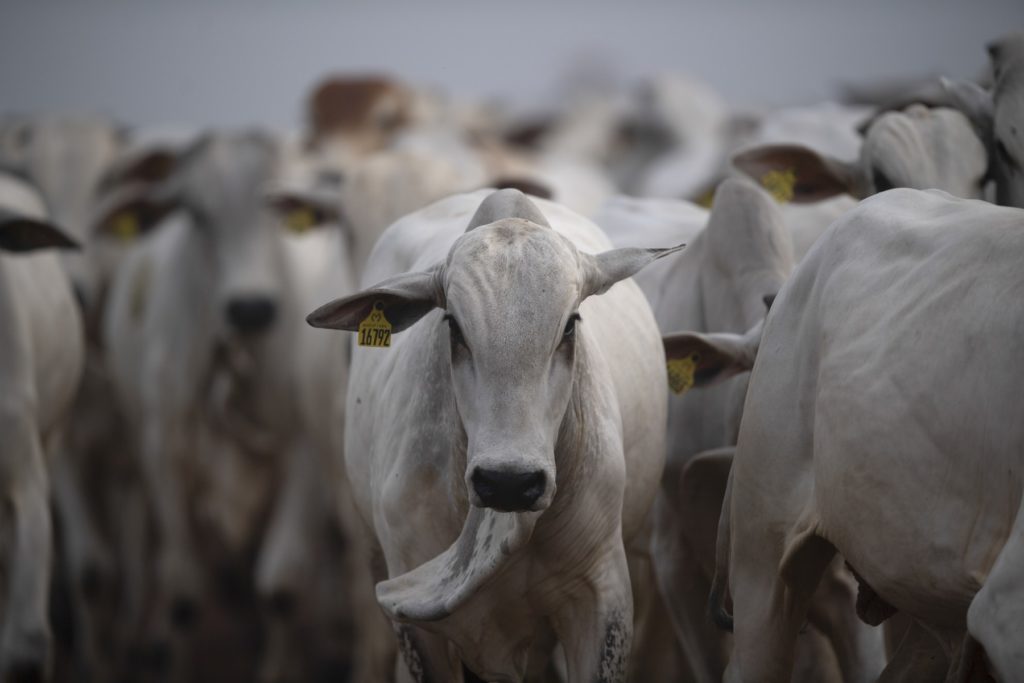São Paulo – This Sunday (26), Morocco received the first shipment of live cattle from Brazil. Two thousand eight hundred cattle were shipped from the state of Pará and arrived in the Arab country through the Jorf Lasfar port on the Atlantic coast, southwest of the national capital Rabat. Another 3,000 live cattle are expected to arrive at the same port on April 8. The picture above is for illustrative purposes only.
According to Felipe Heimburger, Economic and Commercial head of the Brazilian Embassy in Rabat, the market for live cattle from Brazil was opened earlier this year. “The international veterinary certificate was approved in January, during a mission of the Moroccan health authority to Brazil, which signed an agreement with the Ministry of Agriculture and Livestock,” said Heimburger to ANBA.
“Since October last year, Morocco has wanted to import live cattle from Brazil because they are in a seasonal drought, and local breeding has been jeopardized. In addition, meat consumption during the nights of Ramadan increases,” recalled the diplomat. Ramadan is the holy period of Islam, in which Muslims fast during the day and hold family suppers after sunset.
To encourage imports and guarantee the country’s supply, Morocco waivered the tariff for 30,000 cattle until December this year. The quota is valid for any country with which it has diplomatic ties.
“With zero tariffs, Brazilian exporters were encouraged to supply the Moroccan market. The cattle arriving is a cross between Zebu and Angus; it is the first time Brazilian Zebu cattle enter here; the Moroccans did not know Zebu very well,” said Heimburger. The animals were promptly slaughtered at local slaughterhouses.
On April 8, the second batch will arrive, with 3,000 animals, also through the Jorf Lasfar port, in the city of Al Jadida. “That’s where the phosphate comes from, the fertilizer that goes to Brazil. They used this route so the ship could return to Morocco with the animals,” informed the diplomat. One thousand five hundred animals will be right away, and the other half will be fattened on local farms.
Adding the two shipments, 5,800 animals will be shipped from Brazil. Expectations are for Arab buyers to place new orders for Brazilian cattle under the quota of 30,000 heads. “Spain used the quota with 3,500 animals, Uruguay used a little too, but there is still time between now and the middle of the year if Brazilian exporters want to send up to 20,000 cattle. There is demand,” he said. According to Heimburger, it is cheaper to import from Brazil [than from Spain], and the country has a good agribusiness image in Morocco. “Now, Brazil can compete on an equal footing with Europe,” he declared.
Live cattle first, then beef
Heimburger explained the tax incentive for live cattle could be a starting point for the entry of Brazilian animal protein into Morocco, both in frozen cuts and later whole carcasses. “This market could buy animal protein from Brazil. This is where we want to get to; in fact, we want to lower the tariff for the entire protein sector because today, frozen boneless beef has a 200% tariff, it is a barrier, and they have some mechanisms, some quotas they can use,” informed the diplomat. In the case of frozen poultry, the rate is 93%. “This, in practice, bars the Brazilian product from entering the market due to protectionism,” he said.
The Moroccan army buys 6,000 tonnes of animal protein free of tariffs; meanwhile, the private sector pressures the government to lower the tax. “I think in the end, it will happen. I believe with this confidence being built between Brazilian exporters and Moroccan importers, we will obtain a tariff-free quota for frozen animal protein as well. Brazil is reliable, delivers regularly, and will support Morocco’s food security,” he believes.
The Arab country is not self-sufficient in agriculture and livestock. Despite having a sizeable herd of sheep and some poultry and cattle, it depends on imports, including animal feed, and buys soybean and maize from Brazil.
“[The sale of Brazilian animal protein] will be a win-win partnership, good for the Moroccan consumer and the Brazilian exporter. Morocco is an important market, with almost 40 million inhabitants and promising for beef,” he said.
From May 2 to 7, the Morocco International Agricultural Exhibition (SIAM 2023) will take place. For the first time, the Brazilian Embassy to Rabat will participate in the event with a stand and support from the Ministry of Agriculture and Livestock. “We already have 13 companies confirmed in the animal protein, foodstuffs, and agricultural machinery sections,” said Heimburger, who has been at the post for two and a half years.
Translated by Elúsio Brasileiro




